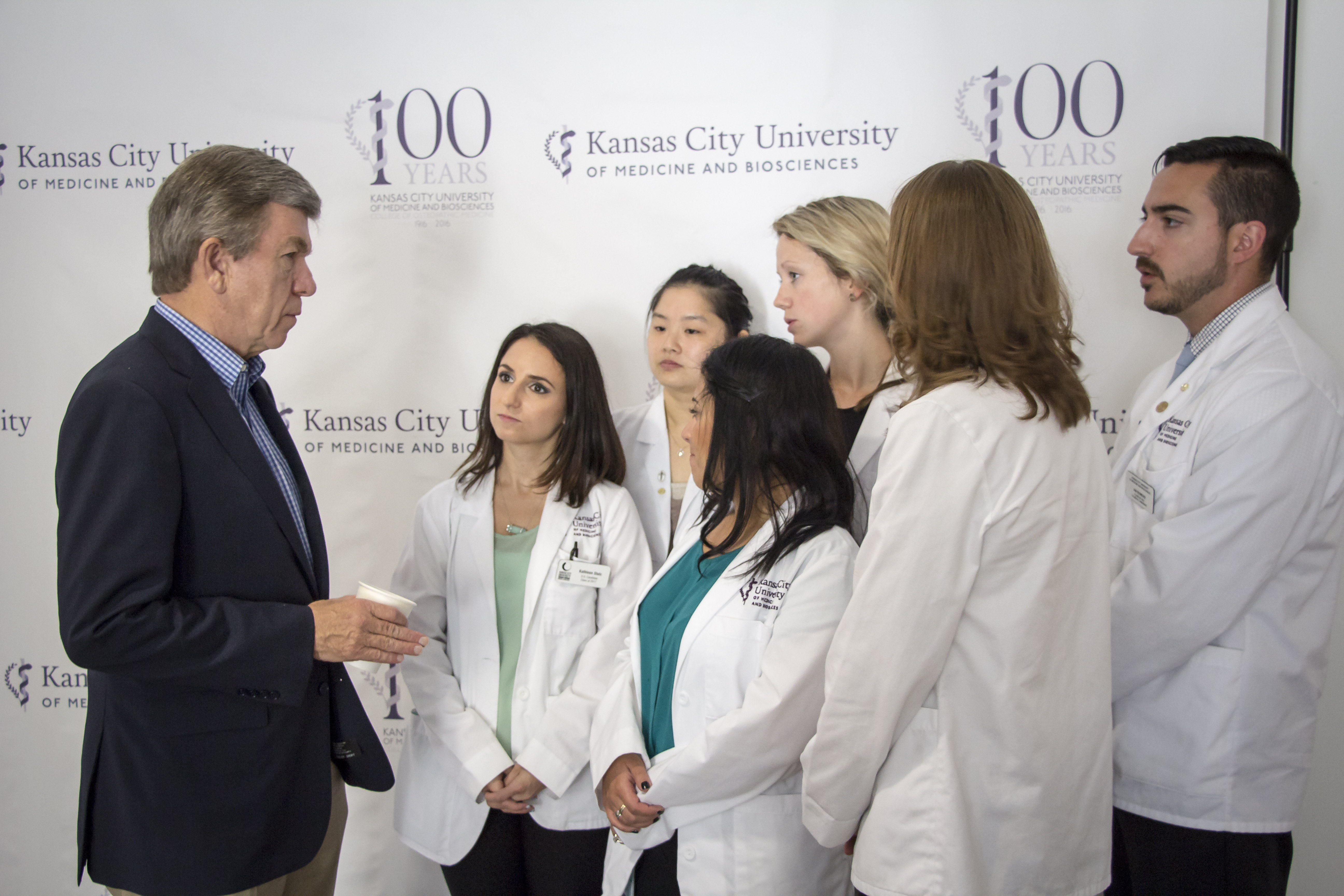United States Senator Roy Blunt visited Kansas City University of Medicine and Biosciences (KCU), meeting with physician and science faculty along with medical students on the front lines of education and treatment in the opioid epidemic gripping the region and the country.
“This is an important issue,” Blunt said. “Preparing doctors in more thoughtful and broad-based ways in how to treat pain.”
KCU is one of 60 U.S. medical schools recognized by the White House that have pledged to enhance education for students who will eventually be prescribing opioids as doctors. https://www.whitehouse.gov/the-press-office/2016/03/29/fact-sheet-obama-administration-announces-additional-actions-address
“KCU is committed to providing the most comprehensive medical education to best train our state and our country’s future physicians,” said Dr. Marc B. Hahn, KCU president and CEO, an anesthesiologist and former pain management specialist. “More than 70% of our students enter primary care specialties, where the majority of opioid prescriptions are written.”
Blunt heard from KCU faculty who design curricula, physicians who currently treat opioid abuse and from KCU medical students who will likely face the complicated health issue of opioid addiction that preys upon people in all walks of life.
KCU already meets the Center for Disease Control and Prevention (CDC) guidelines for teaching pain and addiction management. The university teaches classes in pharmacology, physiology of addiction and non-pharmacological treatment for pain such as acupuncture and osteopathic manipulative therapy. KCU also brings recovering patients to talk about substance abuse disorders and help de-stigmatize ideas that surround opiate addiction.
“We are always looking at new ways to add innovative ideas to our curriculum to better prepare our students,” said Dr. Schoen Kruse, Assistant Dean of Academic Affairs.
Beginning next month, KCU will enhance classroom instruction by adding training in the first and second years of medical school to include medical simulation and many hours of practice treating complicated patients.
“There is nothing like having practical experience,” said Dr. Robert “Bo” Cooley, faculty member and addiction specialist. “We want students to be ready to get into a clinical situation and actually start dealing with patients.”
Senator Blunt spoke about his interest in helping solve the opioid epidemic with a bipartisan bill that would increase funding for treatment, prevention and mental health services.
He praised KCU for its forward-thinking approach.
“From everything I have seen around the country, KCU is recognized as one of the leaders in looking at new ways to deal with pain and for doctors to deal with complex patient issues.”

_20231212142823_0_20231218172027_0.png?w=140&h=140)


(0) Comments